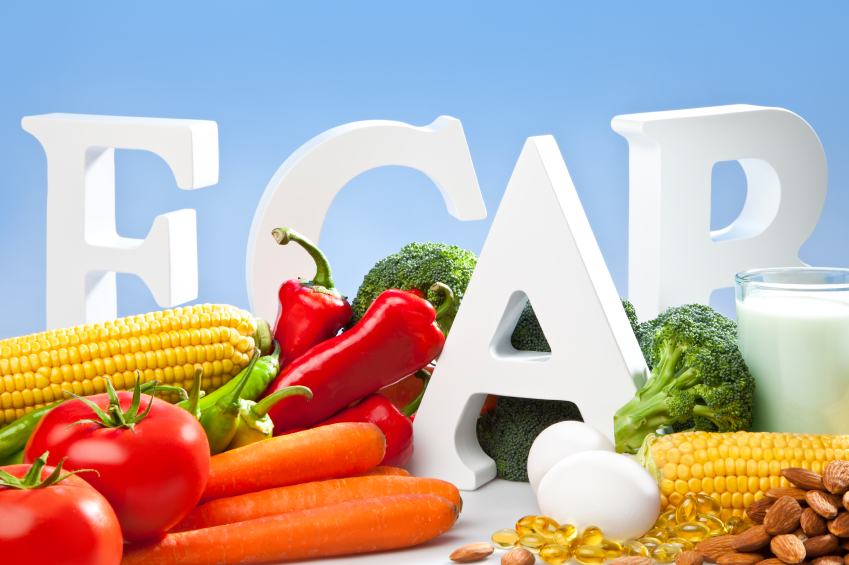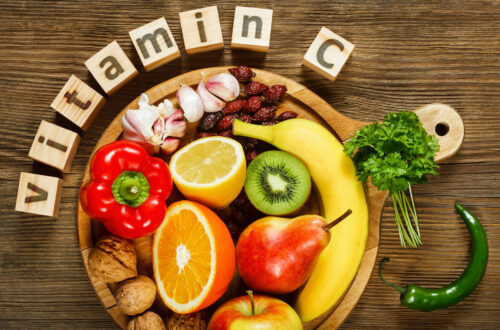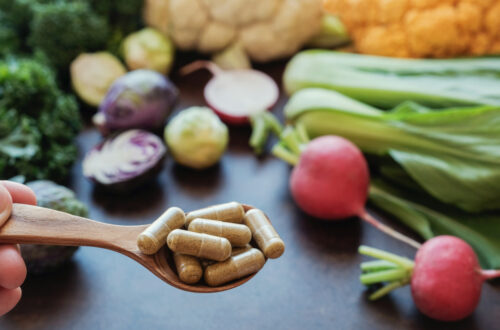Vitamin B12 is a crucial nutrient that plays an essential role in various bodily functions, including red blood cell formation, DNA synthesis, and neurological function. Despite its importance, many people find it challenging to get enough vitamin B12 from their diet, especially those following a vegetarian or vegan lifestyle. This guide aims to provide you with comprehensive information on how to increase your vitamin B12 intake effectively.
Understanding Vitamin B12
What is Vitamin B12
Vitamin B12, also known as cobalamin, is a water-soluble vitamin that is naturally present in some foods, added to others, and available as a dietary supplement and prescription medication. It is essential for the maintenance of healthy nerve cells and red blood cells and is also required for DNA synthesis.
Why is Vitamin B12 Important
Vitamin B12 is vital for several bodily functions, including:
- Red Blood Cell Formation: It helps in the production of red blood cells, preventing anemia.
- DNA Synthesis: It is necessary for the creation of DNA, which carries genetic information in cells.
- Neurological Function: It supports the health of nerve cells and contributes to the production of neurotransmitters.
Sources of Vitamin B12
Animal-Based Foods
Meat
Meat is one of the richest sources of vitamin B12. Beef, liver, and chicken are particularly high in this nutrient. For example:
- Beef liver: Approximately 70 micrograms per 100 grams.
- Chicken breast: About 0.3 micrograms per 100 grams.
Fish and Shellfish
Fish and shellfish are excellent sources of vitamin B12. Some of the best options include:
- Clams: Around 98.9 micrograms per 100 grams.
- Sardines: Approximately 8.9 micrograms per 100 grams.
- Salmon: About 2.8 micrograms per 100 grams.
Dairy Products
Dairy products such as milk, cheese, and yogurt are also good sources of vitamin B12. For instance:
- Milk: Roughly 1.2 micrograms per cup.
- Swiss cheese: Approximately 0.9 micrograms per slice.
Eggs
Eggs contain moderate amounts of vitamin B12, particularly in the yolk. One large egg provides about 0.6 micrograms of vitamin B12.
Fortified Foods
Breakfast Cereals
Many breakfast cereals are fortified with vitamin B12. The amount can vary, so it’s essential to check the nutrition label. Fortified cereals can provide up to 6 micrograms of vitamin B12 per serving.
Plant-Based Milks
Soy, almond, and rice milk are often fortified with vitamin B12. A single cup can offer around 1-3 micrograms of vitamin B12, depending on the brand and product.
Supplements
Vitamin B12 Tablets
Vitamin B12 supplements are widely available in various forms, including tablets, capsules, and sublingual forms. They are particularly useful for individuals who have difficulty absorbing vitamin B12 from food.
Multivitamins
Many multivitamin formulations contain vitamin B12, making them a convenient option for increasing your intake alongside other essential vitamins and minerals.
Dietary Strategies to Increase Vitamin B12 Intake
Incorporating More Meat and Fish
Include more vitamin B12-rich meats and fish in your diet. Opt for lean cuts of beef, chicken, and pork, and consider adding seafood like clams, salmon, and sardines to your meals.
Consuming Dairy and Eggs
Integrate more dairy products and eggs into your daily diet. Enjoy a glass of milk with breakfast, have a slice of cheese as a snack, or incorporate yogurt into your diet.
Utilizing Fortified Foods
Select fortified breakfast cereals and plant-based milks to boost your vitamin B12 intake, especially if you follow a vegetarian or vegan diet.
Considering Supplements
If you have trouble getting enough vitamin B12 from food alone, consider taking a supplement. Consult with a healthcare provider to determine the appropriate dosage and form for your needs.
Vitamin B12 Absorption and Deficiency
How Vitamin B12 is Absorbed
Vitamin B12 absorption involves several steps:
- Release from Food: In the stomach, vitamin B12 is released from food proteins by stomach acid.
- Binding with Intrinsic Factor: In the small intestine, vitamin B12 binds with intrinsic factor, a protein produced by stomach cells, which facilitates its absorption.
- Absorption: The vitamin B12-intrinsic factor complex is absorbed in the ileum, the final section of the small intestine.
Causes of Vitamin B12 Deficiency
Several factors can lead to vitamin B12 deficiency, including:
- Inadequate Intake: Insufficient dietary intake, particularly among vegetarians and vegans.
- Malabsorption: Conditions like pernicious anemia, Crohn’s disease, and celiac disease can impair vitamin B12 absorption.
- Medications: Certain medications, such as proton pump inhibitors and metformin, can interfere with vitamin B12 absorption.
Symptoms of Vitamin B12 Deficiency
Vitamin B12 deficiency can cause a variety of symptoms, including:
- Fatigue and weakness
- Anemia
- Neurological issues, such as tingling and numbness in the hands and feet
- Memory problems and cognitive decline
- Mood changes, including depression and irritability
Special Considerations
Vegetarian and Vegan Diets
Individuals following vegetarian and vegan diets are at a higher risk of vitamin B12 deficiency due to the lack of animal-based foods. It’s crucial for them to consume fortified foods and consider taking a vitamin B12 supplement.
Older Adults
As people age, their ability to absorb vitamin B12 decreases due to reduced stomach acid production. Older adults should be mindful of their vitamin B12 intake and consider fortified foods or supplements if necessary.
Medical Conditions
Certain medical conditions, such as pernicious anemia, Crohn’s disease, and celiac disease, can impair vitamin B12 absorption. Individuals with these conditions should work closely with their healthcare provider to manage their vitamin B12 levels.
FAQs About Vitamin B12
What are the best food sources of vitamin B12?
The best food sources of vitamin B12 include animal-based products such as beef liver, clams, fish (like salmon and sardines), meat (like chicken and beef), dairy products (such as milk, cheese, and yogurt), and eggs. Fortified foods like breakfast cereals and plant-based milks also provide vitamin B12.
How can vegetarians and vegans get enough vitamin B12?
Vegetarians and vegans can obtain vitamin B12 from fortified foods such as breakfast cereals, plant-based milks, nutritional yeast, and meat substitutes. They may also need to take vitamin B12 supplements to ensure adequate intake.
Can I get enough vitamin B12 from plant-based foods?
Natural plant-based foods do not contain significant amounts of vitamin B12. However, fortified plant-based foods, such as certain cereals and plant milks, can provide sufficient vitamin B12. Supplements are also an option for those on a plant-based diet.
How much vitamin B12 do I need daily?
The recommended daily intake of vitamin B12 varies by age and life stage:
- Adults: 2.4 micrograms
- Pregnant women: 2.6 micrograms
- Breastfeeding women: 2.8 micrograms Consult with a healthcare provider for specific recommendations based on your individual needs.
What are the symptoms of vitamin B12 deficiency?
Symptoms of vitamin B12 deficiency include fatigue, weakness, anemia, neurological issues (such as tingling and numbness in the hands and feet), memory problems, cognitive decline, and mood changes like depression and irritability.
Can I take too much vitamin B12?
Vitamin B12 is generally considered safe, even at high doses, because it is water-soluble and excess amounts are excreted in the urine. However, it’s always best to consult with a healthcare provider before taking high doses of any supplement.
Are there any side effects of taking vitamin B12 supplements?
Vitamin B12 supplements are generally safe and well-tolerated. However, some people may experience minor side effects, such as nausea, diarrhea, or a mild rash. If you experience any adverse effects, consult with a healthcare provider.
How long does it take to correct a vitamin B12 deficiency?
The time required to correct a vitamin B12 deficiency depends on the severity of the deficiency and the treatment method. It may take several weeks to months to restore normal vitamin B12 levels through diet and supplements. Regular monitoring by a healthcare provider is essential.
Can vitamin B12 deficiency cause permanent damage?
If left untreated, severe vitamin B12 deficiency can cause permanent nerve damage and cognitive decline. Early detection and treatment are crucial to prevent long-term complications.
Is it necessary to take a vitamin B12 supplement if I eat a balanced diet?
If you consume a balanced diet that includes sufficient amounts of vitamin B12-rich foods (such as meat, fish, dairy, and eggs), you may not need a supplement. However, individuals with absorption issues, older adults, vegetarians, and vegans may benefit from taking a vitamin B12 supplement to ensure adequate intake.
Conclusion
Vitamin B12 is an essential nutrient that plays a critical role in maintaining overall health. Ensuring an adequate intake of vitamin B12 through dietary sources, fortified foods, and supplements can help prevent deficiency and its associated health issues. By incorporating more vitamin B12-rich foods into your diet and being mindful of factors that affect absorption, you can support your body’s needs and maintain optimal health. If you suspect a deficiency or have specific dietary needs, consult with a healthcare provider for personalized advice and guidance.





